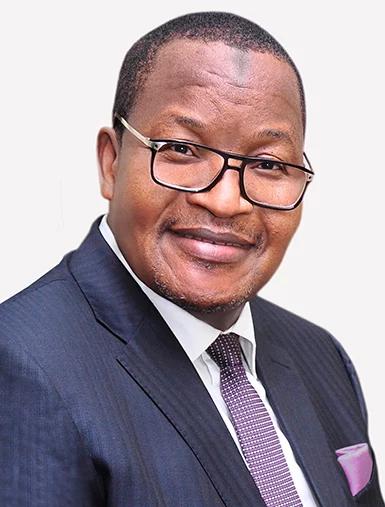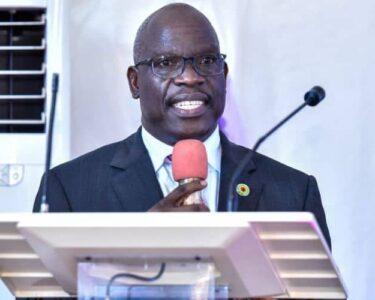In the last seven years, the effective management and licensing of spectrum frequencies required to deploy telecommunications services has been a major watershed under the current administration of Prof. Umar Garba Danbatta as the Executive Vice Chairman and Chief Executive Officer of the Nigerian Communications Commission (NCC).
As a world class communications regulatory agency, NCC’s actions have been guided by decisions that take into cognizance the input from stakeholders in the industry.
The Nigerian Communications sector has witnessed a major increase in competition driven by the Government’s liberalization policies and the robust implementation of initiatives and policies over the years, which has stimulated the growth and development of the sector.
Robust Utilisation of Spectrum Resources
The Commission has committed enormous resources to ensure that harmonized Spectrum is secured and released in a timely manner for present and future rollout of services that will underpin the Fourth Industrial Revolution (4IR), including International Mobile Telecommunication (IMT-2020) services.
The NCC has kept itself abreast of developments at international fora, including ITU-R Study Groups to enable the allocation of strategic Spectrum to IMT services especially the IMT-2020 which has been on the front burner in the last two ITU-R Study Cycles.
Hence, it is important to ensure that timely release of the Spectrum bands necessary for 5G deployment to the industry enables Nigeria telecom reap the immediate and envisaged benefits of 5G technology, and facilitate the development of Nigeria’s Digital Economy to foster national growth.
In line with the Commission’s Strategic Vision (Implementation) Plan 2021 2025, which among other things, seeks to promote fair competition, inclusive growth, increased investment and innovative services, and also facilitate strategic collaboration and partnership, the NCC has deepened broadband penetration and encourage fair competition in the rollout of 5G services in Nigeria by auctioning the available lots in the 3.5GHz Spectrum band.
Airtel’s 5G licence
Just last month, the Commission announced that Airtel Networks Limited has emerged as the sole bidder for the additional two lots in the 3.5GHz spectrum auction that would drive 5G rollout in Nigeria.
The emergence of Airtel as the sole bidder has forced the Nigerian Communications Commission (NCC) to cancel the entire auction process, compelling it to announce the telco as the winner of the 3.5GHz spectrum for the 5G licence.
According to a statement released yesterday by the NCC, which was signed by its Director, Public Affairs, Mr. Reuben Muoka, only two operators expressed interest in the auction of the 3.5Hz spectrum band. They were Airtel Networks Limited and Standard Network. But only Airtel was able to make payment for the Intention to Bid Deposit (IBD) as at December 5, as stipulated in the Information Memorandum (IM) guiding the auction process.
Standard Network could not meet up with the IBD payment, a development that compelled NCC to announce Airtel as the sole bidder of the spectrum auction. According to the statement which explained the current status of the 3.5GHz spectrum auction, Airtel met all the provisions of the IM and therefore emerged as the sole bidder for the 3.5GHz spectrum auction.
Part of the statement read: “The NCC hereby announces that by the close of business on Monday, December 5, 2022, only two companies expressed interest in the auction of the 3.5GHz Spectrum band namely; Airtel Networks Limited (Airtel) and Standard Network & Connections Limited (Standard Network).
“However, only Airtel paid the Intention to Bid Deposit (IBD) as stipulated in the Information Memorandum (IM) whereas, Standard Network sent an email appeal for the deadline to be extended by 12 working days which was not acceptable in view of the auction timetable.
“Having met all the provision in the IM, Airtel has, therefore, emerged as the sole Bidder. “Consequently, there shall be no further bidding and the Commission will proceed to the Assignment Stage in line with the published Information Memorandum guiding the licensing process.”
With Airtel emerging sole bidder, the Commission would receive $273,600,000.00 or its equivalent in naira at the prevailing Central Bank of Nigeria (CBN) rates. The 3.5GHz spectrum has a 10- year licence tenure renewable after the first expiry.
Airtel had participated in the initial 3.5GHz spectrum auction in December 2021, but could not continue with the bidding process after reaching a certain bidding threshold. It eventually withdrew from further bidding, leaving Mafab Communications and MTN that emerged as winners.
Additional $316.7m Spectrum fees
Meanwhile, Airtel has so far put out a statement indicating that Airtel Africa‘s Nigerian subsidiary has acquired the 100 MHz of spectrum in the 3500MHz frequency and 2x5MHz of 2600MHz from the NCC for $316.7 million. This a spectrum fees that the NCC will remit into the Federal Government’s Consolidated Revenue Funds (CRF), as all proceeds from spectrum sales by NCC must be directly deposited into the CFR account, according to provision of the Nigerian Communications Act (NCA), 2003.
In its revenue generation drive, under Prof Danbatta’s leadership, the Commission had generated $547.2 million from MTN Nigeria and Mafab Communications and remitted same to the federal government’s Consolidated Revenue Fund account domiciled at the Central Bank of Nigeria (CBN).
“We have records available to show that we have been contributing a lot to the coffers of the government and a very good example is when we did that successful 5G auction. The proceeds from the auction go to the coffers of the government.
“We don’t normally take anything. It is gazetted that whenever we sell spectrum, we do not keep the money; we normally transfer this money to the consolidated revenue fund of the government,” said Prof Danbatta.
NCC As Major Pillar of FG’s Revenue Drive
Today, the Commission is a major financial pillar of the federal government of Nigeria through spectrum and other classes of licences issued by it as well as through payment of Annual Operating Levy paid by telecom licencees.
The Commission’s role and the financial gains it gains it brings to government budget financing and the Nigerian economy at large, has helped in boosting federal government revenue generation especially as the NCC has been classified as a Revenue Generating Agency by the National Assembly rather than as a Government-Owned Enterprise (GOE).
With the new round of 3.5GHz spectrum auction for 5G technology deployment by the NCC under the leadership of the Executive Vice Chairman, Prof Umar Danbatta, the Commission is taking the bull by the horns to deliver more as a regulator and a major driver of the Federal Government’s revenue drive.
The 5G mobile technology is far ahead of previous technology standards. Deployment of this latest mobile technology shows that it brings about delivery of ubiquitous broadband services, allow for real-time communication and improve data transfer, especially upstream speeds.
Already, MTN Nigeria has rolled out its 5G network in seven cities in Nigeria. This new technology which millions of Nigerian telecom consumers are going to experience, brings about 10 times user experience throughput, 10 times connection density, 10 times decrease in latency, three times spectrum efficiency, 100 times traffic capacity and 100 times network efficiency.
In addition to the bandwidth increase for seamless video streaming or the next social application playground, 5G technology supports real-time, ultra-reliable communication between massive numbers of devices.
5G technology has vast possibilities in innovation and transformation, and will immensely improve quality of living, as users gain a better experience of services and technology in general – from financial services, healthcare, education, and even public service delivery to more leisurely purposes, such as video streaming services, gaming and even self-driving cars.
Meanwhile, Prof Danbatta has been hailed for the diligence that attended the implementation of 5G policy by the NCC since the process started in 2019, as the Commission, under Danbatta-led leadership, had taken proactive and meticulous steps to be among the leading players in the global digital economy.
Revenue Generating Agency
Perhaps, it is because of this important role that NCC has been playing that it was last year categorised as revenue-generating agency by the National Assembly rather than a Government-Owned Enterprise (GOE). Indeed, the Danbatta-led NCC has always taken the bull by the horns to deliver more as a regulator and a major driver of federal government’s revenue drive.
Apart from taxes and other remittances by the telecoms operators into Federal Government’s purse facilitated by the NCC, the C omission is leveraging new technology such as 5G, whose value would also help to bring greater prosperity to Nigerian economy, in the area of increased GDP contribution and efficiency and effectiveness across all sectors of the economy.




